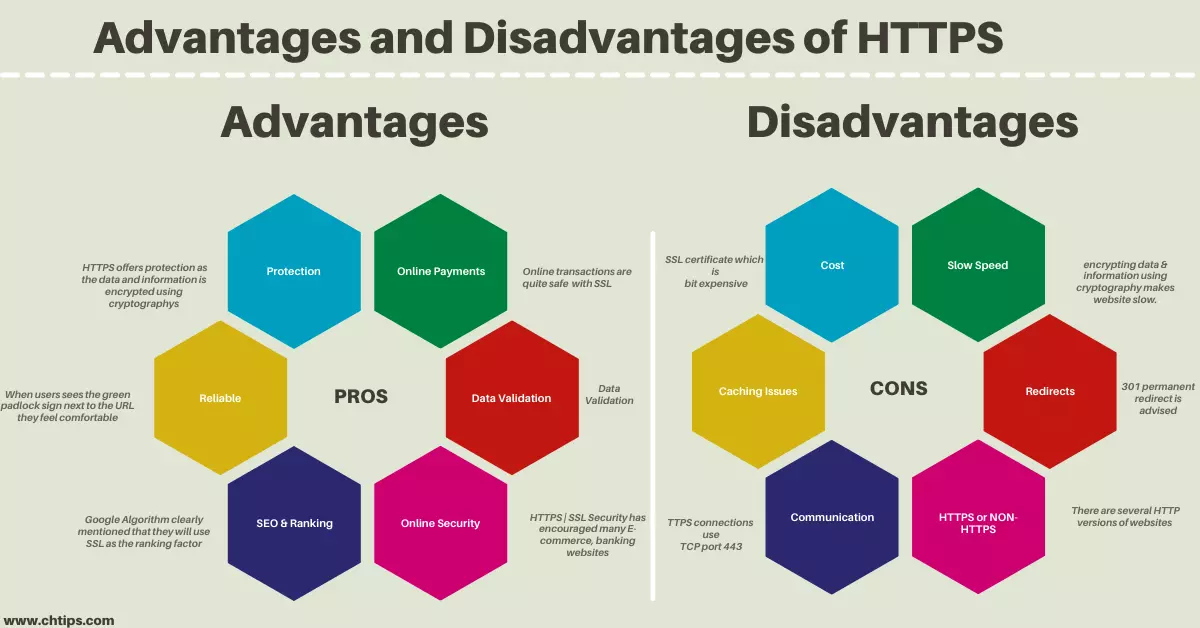Advantages and Disadvantages of Digital Certificate

Advantages of Digital Certificates:
Authentication: Digital certificates provide a reliable means of authenticating the identity of individuals, organizations, or devices in electronic communications and transactions.
Data Integrity: Digital certificates ensure the integrity of transmitted data by verifying that it has not been tampered with or altered during transmission.
Non-Repudiation: Digital certificates support non-repudiation, meaning the sender cannot later deny having sent a message or performed a transaction, as their identity is verified through the certificate.
Encryption: Digital certificates facilitate secure communication by enabling encryption of data transmission. This ensures that only authorized parties can access the encrypted information.
Global Acceptance: Digital certificates are widely accepted and recognized across the globe for various applications, including secure web browsing (HTTPS), email encryption (S/MIME), and electronic signatures.
Trust Hierarchy: Digital certificates are organized into a hierarchical trust chain, providing a framework for establishing trust relationships between entities. This helps users determine the authenticity of certificates and the trustworthiness of the entities they represent.
Revocation Mechanisms: Digital certificates support revocation mechanisms such as Certificate Revocation Lists (CRLs) and Online Certificate Status Protocol (OCSP), allowing users to check the validity of certificates and respond to security incidents promptly.
Disadvantages of Digital Certificates:
Cost: Acquiring and maintaining digital certificates may involve costs, including certificate issuance fees, renewal fees, and infrastructure costs for managing certificate authorities and revocation mechanisms.
Complexity: Implementing and managing a Public Key Infrastructure (PKI) to support digital certificates can be complex and require expertise in cryptography, network security, and certificate management.
Dependence on Infrastructure: Digital certificates depend on the availability and reliability of certificate authorities (CAs) and other components of the PKI. Any disruptions or compromises in the infrastructure can affect the trustworthiness of certificates and the security of communications.
Key Management: Proper management of cryptographic keys is essential for the security of digital certificates. Safeguarding private keys, managing key lifecycles, and responding to key compromise events require careful attention and resources.
Compatibility Issues: Different applications and systems may have varying levels of support for digital certificates and PKI standards. Compatibility issues can arise when integrating systems or exchanging data between entities with different certificate policies and formats.
Risk of Compromise: Digital certificates are vulnerable to various threats, including certificate forgery, key compromise, and man-in-the-middle attacks. Regular monitoring, auditing, and security measures are necessary to mitigate these risks.
Legal and Regulatory Challenges: Compliance with legal and regulatory requirements related to digital certificates, such as data protection laws and industry standards, may pose challenges for organizations operating in different jurisdictions or industries.
Despite these challenges, the advantages of digital certificates often outweigh the disadvantages, and they remain a critical component of secure electronic communications and transactions. With proper planning, implementation, and management, digital certificates can effectively support trust, confidentiality, and integrity in the digital realm.
Thank you,